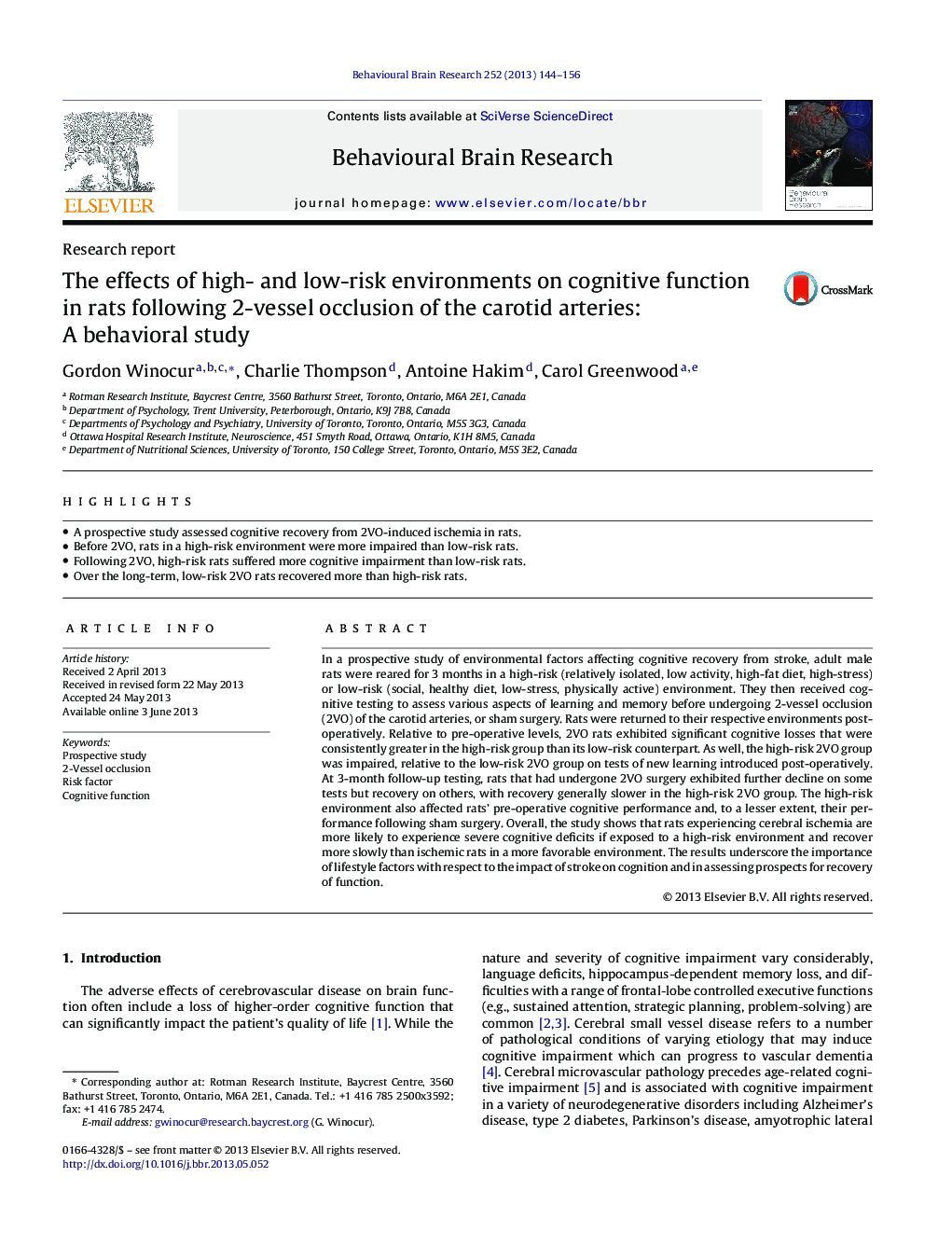| Article ID | Journal | Published Year | Pages | File Type |
|---|---|---|---|---|
| 4312603 | Behavioural Brain Research | 2013 | 13 Pages |
•A prospective study assessed cognitive recovery from 2VO-induced ischemia in rats.•Before 2VO, rats in a high-risk environment were more impaired than low-risk rats.•Following 2VO, high-risk rats suffered more cognitive impairment than low-risk rats.•Over the long-term, low-risk 2VO rats recovered more than high-risk rats.
In a prospective study of environmental factors affecting cognitive recovery from stroke, adult male rats were reared for 3 months in a high-risk (relatively isolated, low activity, high-fat diet, high-stress) or low-risk (social, healthy diet, low-stress, physically active) environment. They then received cognitive testing to assess various aspects of learning and memory before undergoing 2-vessel occlusion (2VO) of the carotid arteries, or sham surgery. Rats were returned to their respective environments post-operatively. Relative to pre-operative levels, 2VO rats exhibited significant cognitive losses that were consistently greater in the high-risk group than its low-risk counterpart. As well, the high-risk 2VO group was impaired, relative to the low-risk 2VO group on tests of new learning introduced post-operatively. At 3-month follow-up testing, rats that had undergone 2VO surgery exhibited further decline on some tests but recovery on others, with recovery generally slower in the high-risk 2VO group. The high-risk environment also affected rats’ pre-operative cognitive performance and, to a lesser extent, their performance following sham surgery. Overall, the study shows that rats experiencing cerebral ischemia are more likely to experience severe cognitive deficits if exposed to a high-risk environment and recover more slowly than ischemic rats in a more favorable environment. The results underscore the importance of lifestyle factors with respect to the impact of stroke on cognition and in assessing prospects for recovery of function.
